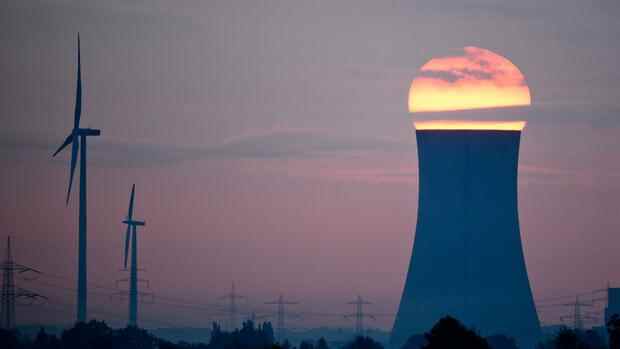A draft for the final document stipulated that coal-fired power plants would end by 2030, provided the plants could not separate and safely store their greenhouse gases.
(Photo: dpa)
Berlin For the first time, the seven largest industrialized countries (G7) in the world have agreed to end climate-damaging coal-fired power plants. On Friday in Berlin, the states promised concrete national implementation steps in the final communiqué of the G7 energy and climate ministers’ meeting – but did not name an end date.
However, they undertake to make all electricity generation largely CO2-free by 2035, which also excludes the use of gas-fired power plants. By 2030, the transport sector should at least largely be fuel-free.
The states want to largely stop subsidies for fossil fuels by 2025 and allow international financing of gas, oil and coal projects to expire this year.
Nevertheless, the G7 states are appealing to the oil state cartel Opec to make more oil available in the short term. “We call on oil and gas producing countries to act responsibly and respond to the tightening of international markets, noting that OPEC has a key role to play,” the communiqué said.
Top jobs of the day
Find the best jobs now and
be notified by email.
OPEC has so far resisted US demands to boost production beyond the long-planned incremental increase. The cartel is meeting next week.
In the final document, the energy, climate and environment ministers also emphasized that, despite the war in Ukraine, they are sticking to the climate goal of limiting global warming to 1.5 degrees compared to pre-industrial times. To do this, they wanted to further increase their ambitions. Germany currently holds the G7 presidency, the meeting took place in Berlin. The G7 group also includes the USA, Japan, France, Canada, Great Britain and Italy.
A draft for the final document stipulated that coal-fired power plants would end by 2030, provided the plants were not able to separate and safely store their greenhouse gases. The year is now missing from the communique, which, according to information from G7 circles, is mainly due to the resistance of the USA and Japan.
Environmentalists are satisfied
Federal Environment Minister Steffi Lemke (Greens) commented positively on the sidelines of the meeting: “I’m going home this afternoon with a good feeling, because this G7 meeting was a success for climate protection, for nature conservation and environmental protection.”
Initial reactions from environmentalists were positive. The decision to phase out fossil fuels is “a strong and necessary signal, as is the intention to support poorer countries in phasing out fossil fuels and coping with climate-related damage and losses,” said Greenpeace Germany’s executive director, Martin Kaiser.
David Ryfisch, head of the international climate policy team at the environmental and development organization Germanwatch, said: “In the final text, the G7 gave a pleasingly clear answer to the energy crisis triggered by the Russian war of aggression: it lies in the accelerated expansion of renewable energies and an increase in energy efficiency .”
More: Scholz is committed to free trade: “Deglobalization is a dead end”
